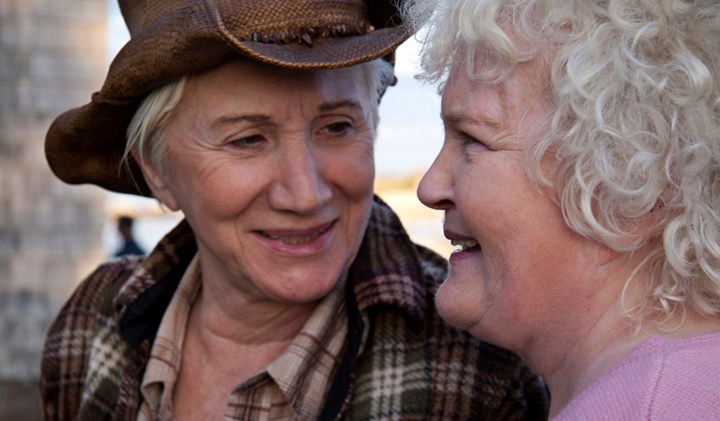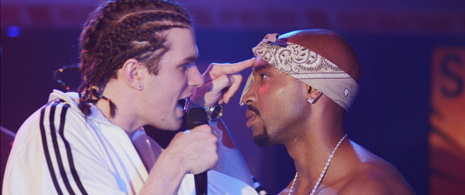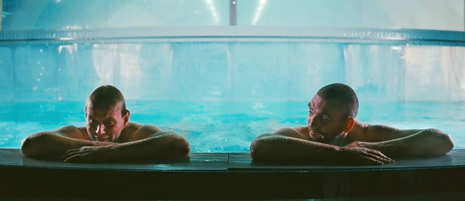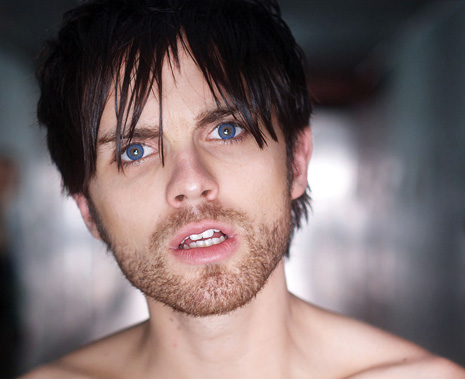Maverick Life
Out in Africa: A gay old time at the cinema

The Out in Africa film festival is back with its latest instalment of gay flicks. As with every film festival, some are good and some are less so. But if you’re interested in queer or alternative filmmaking, you’ll want to take advantage of it since gay flicks showing at a mainstream cinema are still few and far between. By REBECCA DAVIS.
There was a time, not so long ago, when gay male characters in movies fell within a very limited range of possible types. There was the campy best friend to a woman, perpetually available for confidences and wardrobe advice, but ultimately sexless himself (think Rupert Everett in My Best Friend’s Wedding). There was the tragic, closeted gay whose sexuality ended up destroying him (think Brokeback Mountain), and there was the gay who suffered a long-winded, painful death from Aids (Philadelphia).
Lesbian characters in movies have fared even less well, because there are hardly any of them. 2010’s The Kids Are All Right, starring Julianne Moore and Annette Bening, was arguably the first big-budget film with mainstream appeal that focused on the life of a gay female couple. (And even then, one of them ended up having sex with a man.) You are challenged to try to name more than a handful of lesbian characters in major films over the past decade – or, indeed, before that.
Because gay representation in film is still so limited, gay film festivals are a pretty big deal for the queer community, since they represent one of the only opportunities to see gay stories on the big screen. Often the quality of these films isn’t superb – for one thing, they’re inevitably made on smaller budgets. For another, one unhappy consequence of the paucity of gay characters onscreen is that, as a friend grumbled a while back, “We’re so desperate for representation that we’re grateful for anything”. This may seem like a sweeping statement, but among the gays of my acquaintance (myself included), there’s certainly a higher threshold for mediocrity when watching gay films than would ordinarily be applied to mainstream films.

Photo: Bashment
The good news about this year’s Out in Africa film festival is that there’s no need to apply those critical double standards: there are a number of excellent films, and a number of films that, while far from perfect, are nonetheless interesting for different reasons.
Nodi Murphy has been the director of Out in Africa since she founded the festival in 1994. In the intervening 18 years, she says she’s noticed definite changes in the type of queer films being produced. “Look, just as in straight filmmaking, the same old schlock is being turned out, what I call Jennifer Aniston movies,” she says. “But of late, some of the filmmaking is more sophisticated. There are better budgets, and there’s more maturity in the treatment of subjects.”
The issue of limited budgets is both a blessing and a curse, because while it leads to some distinctly amateurish-looking products, it also means that gay cinema “is truly independent,” Murphy points out. “There are no studio films here, no big marketing budgets. You make a gay film and hope it’ll get picked up by some festivals around the world and you’ll maybe make a bit of money, but it really is independent filmmaking.”
The criteria for what constitutes a sufficiently “gay” film for screening at the festival are fairly strict. “It doesn’t have to be by a gay director,” says Murphy. “But it does have to feature main characters who are gay, not just subsidiary ones, and it should deal with queer issues, as well as issues of gender – we like to screen an intersex film when we can.” She specifies “queer” issues rather than “gay” because it allows for films which deal with more broadly alternative sexual relationships.
One of the most hotly touted films being screened, which falls into this category, is the German film Drei, the story of a male-female couple who independently fall in love with the same man. Drei should be a safe bet for a ticket purchase, since it comes wreathed with seven international awards and is the work of Tom Tykwer, the director of acclaimed films like Run, Lola Run and Perfume.
Kaboom is the work of another highly regarded director, Gregg Araki, who made 2005’s superb Mysterious Skin. Kaboom doesn’t live up to the promise of the earlier film, however: the tale of an 18 year-old college student who gets caught up in the activities of a sinister underground cult. It’s surreal, frequently funny and refreshingly non-dogmatic when it comes to issues of sexual identity. But, ultimately, it feels insubstantial.

Photo: Drei
Keep the Lights On is another film that arrives with a fair amount of hype, since it won the 2012 Teddy Award for Best Feature (the equivalent of the Oscars for gay filmmaking). It’s the story of the turbulent relationship between Erik, a New York documentary filmmaker, and Paul, a lawyer with a substance-abuse problem. The narrative plays out over several years. It’s a slow, beautifully shot film that doesn’t settle for pat answers about the difficulty of maintaining relationships against the backdrop of addiction. This is gay filmmaking for grown-ups, and it’s about time.
One of my picks of the festival is Absent, directed by Marco Berger – a 2010 film from Argentina which tackles a subject you don’t often see. It presents the scenario of an obsessive relationship between a teacher and a schoolboy – except that it’s the schoolboy who has the obsession, and consequently much of the power. It’s another slow burner – at the film’s close you realise that there has been surprisingly little in the way of actual action or dialogue, but the director succeeds in maintaining – and ratcheting up – the dramatic tension throughout in a way that makes for a genuinely gripping, disturbing piece of cinema.
British film-maker Rikki Beadle-Blair is attending the film festival courtesy of the British Council, and will be giving workshops in Cape Town and Johannesburg. His film, Bashment, is one of the most interesting movies being screened, though it’s also flawed. It’s the account of a hip-hop MC competition in London that goes horribly wrong when a group of rappers carry out a homophobic attack.
The rest of the narrative is devoted to exploring notions of forgiveness, gender roles and, in particular, the roots of homophobia within black masculinity. This is of obvious interest in a South African context, although it’s likely that some of the film’s ideas in this regard would not translate easily on a local scale.
What compromises the film a little is its insistence on a redemption, which feels too easily won, but it does bring lightness to a subject that could otherwise be unbearably dark. Beadle-Blair wrote the script himself, which is wordy – almost Shakespearian in places, in fact – but also exhilarating: the language alone is one reason to see the film. As much as the film is a meditation on homophobia, it is also a love letter to ragga music and the world of the London-Jamaican community, and offers some fascinating insights into the latter. It’s really a film worth seeing.

Photo: Kaboom
All the films I’ve mentioned thus far have gay men at their centre, and it’s true that the festival’s offerings are skewed towards gay men rather than lesbians. Murphy is unapologetic about this, saying it reflects wider commercial realities about what gets bums on seats. “The lesbian audience is harder,” she says. “They have less buying power, less disposable income, and in South Africa are more likely these days to have families and be less able to take a night to go to the cinema.”
There are some lesbian films being screened, however. The best is Cloudburst, Thom Fitzgerald’s 2011 road movie starring Olympia Dukakis and Brenda Fricker, which is a bit like Thelma and Louise with 80-year-olds (there’s even a hunky young hitch-hiker). It is extraordinarily refreshing to see older women characters presented as sexually active, irreverent and funny – Dukakis in particular has some verbal set-pieces that will leave you spluttering at their hilarious profanity. It’s moving, life-affirming stuff, and its appeal should span ages, gender and sexual orientation.
Stud Life is a recent English film that explores the romantic life of a “stone butch” – a woman who only wants to give, rather than receive, sexual contact – who falls in love with a “femme”. The movie was made on a prayer and a shoestring, and it shows, in terms of sound, lighting and locations. If you’re willing to suspend your disbelief in this regard, though, it’s a likeable film that offers interesting glimpses into alternative sexualities.
The two South African short features showing were both part of SABC 3’s I am Woman – Leap of Faith series, which showcased 26 noteworthy South African women. The two episodes being screened at the festival feature Free Gender founder Funeka Soldaat, an intersex activist who has been prominent in battling the latest tide of lesbian-targeted township violence, and Judith Kotze, a minister who had to fight conservative Afrikanerdom in order to come out and serve as a religious leader. Both women emerge as exceptional figures, but the telling of Kotze’s story is perhaps the more gripping.
Possibly the best South African product at the festival is Daniel McCauley’s short film Letting Go, which, though only 10 minutes long, hints at a very promising career for the young director. It’s the darkly funny tale of Death arriving to collect the feisty Ma Nkosi, who isn’t going anywhere without a fight – or without gaining closure on the matter of her estranged gay son. This is black humour, but it’s oddly touching, too.
The variety of films on offer at Out in Africa, in terms of subjects, themes and communities, is a testament to how far gay filmmaking has come in recent years, even though it still lacks mainstream support. Less visible is the reliance on coming-out stories or homosexuality as a source of shame or trauma. Murphy wryly sums up the evolution: “What’s nice these days is that the lesbian doesn’t die as punishment because she’s a lesbian. She dies because she’s old, and has lived a rich, full life.” DM
The Out in Africa Film Festival is screening in Cape Town and Johannesburg from Friday 27 July to Sunday 5 August.
Main photo: Cloudburst



















 Become an Insider
Become an Insider